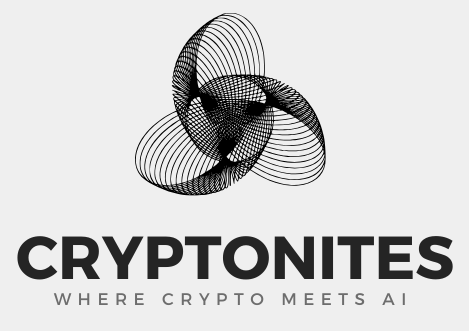Bitcoin vs. Ethereum vs. Altcoins: Which One Should You Choose in 2025?
The world of cryptocurrency has evolved dramatically since Bitcoin's inception in 2009. Today, investors and enthusiasts must navigate a complex landscape of digital assets, from the pioneering Bitcoin to Ethereum’s smart contract capabilities and an ever-growing selection of altcoins. But which cryptocurrency is the right choice for you?
This comprehensive guide compares Bitcoin, Ethereum, and altcoins across multiple factors, including security, use cases, investment potential, and market trends. Whether you're a long-term investor, a trader, or a blockchain enthusiast, this article will help you make an informed decision.
Bitcoin: The Digital Gold Standard
1. What is Bitcoin?
Bitcoin (BTC) is the first and most well-known cryptocurrency. It was created as a decentralized alternative to traditional money, allowing peer-to-peer transactions without intermediaries like banks.
2. Key Features of Bitcoin
- Scarcity & Store of Value: With a capped supply of 21 million coins, Bitcoin is often compared to gold as a hedge against inflation.
- Decentralization & Security: Bitcoin operates on a highly secure Proof-of-Work (PoW) consensus mechanism, making it resistant to attacks.
- Adoption & Liquidity: As the most widely accepted cryptocurrency, Bitcoin has strong institutional adoption and is available on nearly every crypto exchange.
3. Pros and Cons of Bitcoin
Pros:
- Proven track record as a store of value
- Strong security due to extensive mining power
- Most widely accepted cryptocurrency globally
Cons:
- Slower transactions compared to other blockchains
- High transaction fees, especially during network congestion
- Limited smart contract functionality
Ethereum: The Smart Contract Leader
1. What is Ethereum?
Ethereum (ETH) is a decentralized blockchain that introduced smart contracts—self-executing agreements that enable decentralized applications (dApps), DeFi (Decentralized Finance), and NFTs (Non-Fungible Tokens).
2. Key Features of Ethereum
- Smart Contracts & dApps: Ethereum allows developers to build applications that operate without central authorities.
- Transition to Proof-of-Stake (PoS): Ethereum’s move to PoS (Ethereum 2.0) improves scalability, energy efficiency, and security.
- DeFi & NFT Dominance: Ethereum is the backbone of decentralized finance and non-fungible tokens.
3. Pros and Cons of Ethereum
Pros:
- Smart contracts enable a wide range of applications
- Large developer community and continuous innovation
- Lower energy consumption after Ethereum 2.0 upgrade
Cons:
- High gas fees during peak usage
- Still undergoing upgrades to improve scalability
- Competition from other smart contract platforms
Altcoins: The Diverse Alternatives
1. What are Altcoins?
Altcoins refer to all cryptocurrencies other than Bitcoin. These include Ethereum competitors (e.g., Solana, Cardano), privacy coins (e.g., Monero, Zcash), and utility tokens (e.g., Chainlink, Binance Coin).
2. Categories of Altcoins
- Smart Contract Platforms: Solana, Cardano, Polkadot, Avalanche
- Privacy Coins: Monero, Zcash, Dash
- Stablecoins: USDT, USDC, DAI
- Utility & Governance Tokens: Chainlink, Uniswap, AAVE
3. Pros and Cons of Altcoins
Pros:
- Potential for higher returns compared to Bitcoin & Ethereum
- Innovation in different blockchain functionalities
- Lower transaction fees on certain networks
Cons:
- Higher risk and volatility
- Many projects fail due to lack of adoption
- Regulatory uncertainty in many jurisdictions
Bitcoin vs. Ethereum vs. Altcoins: Which One Should You Choose?
1. Investment Perspective
- Bitcoin: Best for long-term holding and wealth preservation.
- Ethereum: Ideal for those interested in DeFi, NFTs, and smart contracts.
- Altcoins: Suitable for risk-tolerant investors seeking high-growth opportunities.
2. Transaction Costs & Speed
- Bitcoin: Slower and expensive during high traffic periods.
- Ethereum: Faster than Bitcoin but can still be costly.
- Altcoins: Many offer lower fees and faster speeds (e.g., Solana, Polygon).
3. Use Cases
- Bitcoin: Digital gold, store of value, and inflation hedge.
- Ethereum: Smart contracts, DeFi, and NFTs.
- Altcoins: Diverse applications, from gaming to cross-border payments.
The choice depends on your goals. If you’re looking for security and long-term value storage, Bitcoin remains the strongest option. Ethereum is perfect for those interested in the future of decentralized applications, while altcoins offer opportunities for those willing to take on more risk for potentially higher rewards.
Understanding the strengths and weaknesses of each category is crucial for making an informed investment decision. As the crypto space evolves, keeping up with market trends and technological advancements will ensure you make the best choices for your financial future.


 by Sophie Lejeune -
Published on 17 March 2025 00:00 GMT
by Sophie Lejeune -
Published on 17 March 2025 00:00 GMT